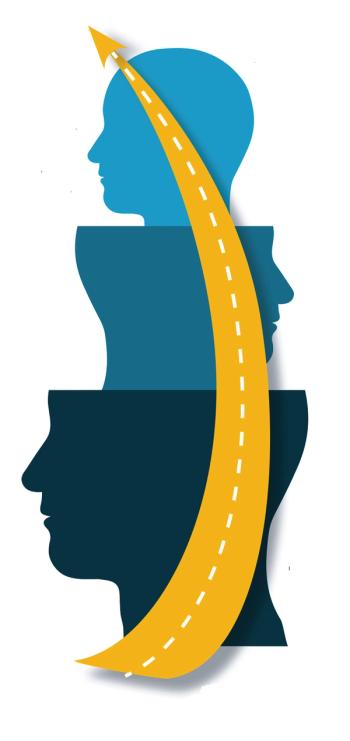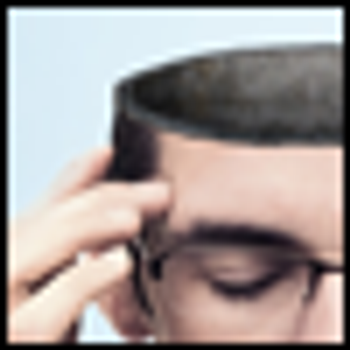
Identifying comorbid anxiety disorders as potential treatment targets may contribute to more positive outcomes for patients with schizophrenia. Details here.


Identifying comorbid anxiety disorders as potential treatment targets may contribute to more positive outcomes for patients with schizophrenia. Details here.

The authors examine anxiety in the medically ill: its presence secondary to or as an impersonator of physical illness and its diagnostic and management challenges.

Elderly patients represent approximately what percentage of the population with bipolar disorder? Take the quiz and learn more.

The clinician's role is to “translate” symptoms of OCD and understand the dysfunctional circuits at play to decide on the most appropriate treatment for each patient.

Despite the growing body of evidence that supports the existence of a specific epidemiological, genetic, and neurobiological relationship between OCD and schizophrenia, the association remains poorly understood. Here, a brief overview.

There is increasing evidence and support for medications for alcohol use disorders to be used in regular clinical practice, and not to be limited to specialty substance abuse settings. Here, special considerations for pharmacological management.

More than half of all patients with psychiatric disorders report disturbances of sleep and wakefulness. "Sleep disorders are associated with impaired daytime function and predict a heightened future vulnerability to psychiatric disease. They also diminish life span.” Details from an expert here.

In this article, Julie Sherman, PhD and Jay Tarnow, MD briefly discuss the latest research findings on ADHD.

The aggregation of psychiatric diagnoses in individual psychiatric patients, ie, the presence of multiple disorders in one individual, is a curious and sometimes disturbing observation in psychiatry.

Impulse control disorders are common psychiatric conditions in which affected individuals typically report significant impairment in social and occupational functioning, and may incur legal and financial difficulties as well.

Over half of the population is exposed to at least one lifetime traumatic event, yet relatively few of those exposed have lasting psychiatric sequelae. As psychiatrists, we attend to the needs of those who suffer.

While the diagnostic categories of DSM-III and DSM-IV (and soon DSM-5) have provided the basis for much useful research, little has been written about how much of DSM-and how much “evidence-based medicine”-is built on a foundation of fantasy.

Borderline Personality Disorder - Psychogenic Movement Disorders - Myalgic Encephalomyelitis - Migraine

It is clear that the prognosis for schizophrenia is much better when patients achieve drug abstinence, including in the domains of depression, quality of life, and community integration.

Movement abnormalities and psychiatric symptoms often overlap and exacerbate one another. Can psychopharmacological agents induce movement disorders?

A list of recent articles highlighting the complexity of psychiatric and systemic illness, both in terms of overlapping clinical presentation and in the degrees to which systemic illness and psychiatric illness affect each other.

This article reviews the diagnostic criteria for both myalgic encephalomyelitis and fibromyalgia and describes how to differentiate them from depressive and anxiety disorders, the psychiatric conditions with which they are most often confused.

Diabetes mellitus and depression symptoms are associated with with decreased self-care and less adherence to exercise, medications, smoking cessation, and eating a healthy diet.

The goal of this article is to improve recognition of comorbid psychiatric and movement disorders and to help the reader formulate a management strategy using a multidisciplinary approach.

These articles illustrate the variety and complexity of problems associated with comorbidity in psychiatric disorder.

Borderline personality disorder typically coexists with depression, anxiety, and substance abuse. Symptoms of these conditions may lead the clinician to miss the diagnosis of personality disorder entirely. Careful diagnosis of BPD and comorbid disorders is the first step.

Migraine, particularly chronic migraine, as well as other chronic headaches, have high rates of comorbidity with mood and anxiety disorders.

With DSM-5 now approved, all discussion has been removed from the DSM-5 Web site. According to the APA, the DSM-5 leadership moved to dimensional measures as one solution to the validity problem.

This article aims to provide the general psychiatric community with an update on the major findings on the biology of ASDs as well as the advances in diagnostic and interventional strategies.

This essay begins an ongoing series on bipolar disorder focused on clinical utility.